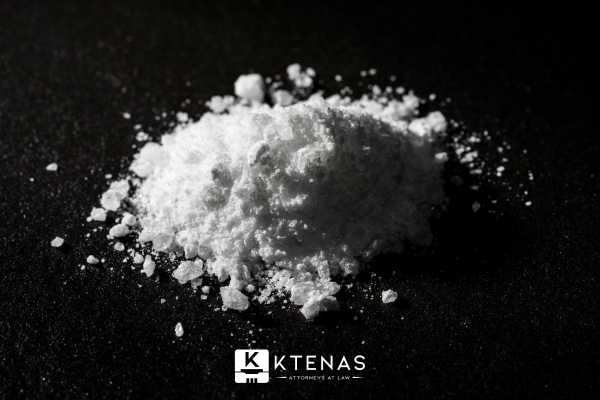Can You Legally Record Police Officers?
11/09/2025
Possession charges involve having a controlled substance for personal use, possession with intent to distribute carries far more serious consequences, as it implies the intent to sell or distribute drugs. The distinction between these two charges significantly impacts your case, making it crucial to grasp the legal implications.
If you’re facing drug charges, having the right defense can make all the difference. Contact a drug defense lawyer in Chicago who can help you navigate the legal process and work toward the best possible outcome for your situation. Don’t wait—secure the legal support you need today. Call Ktenas at (312) 800-1626 to get the defense your case needs.
In the state of Illinois, drug possession is when you physically possess illegal drugs or have them in your control period. This could mean being found with marijuana on your person or having trace amounts of cocaine found in your vehicle. Both can be classified as simple drug possession.
With simple drug possession, there is no evidence that you are planning on selling the drug or distributing it to other people. In these cases, they have typically only found an amount intended for personal consumption.
The penalties for a simple possession charge will vary depending on the type of drug you are found with. For example, possession of small amounts of marijuana will typically result in a small fine for a first offense. For controlled substances like cocaine, heroin, and meth this is considered a felony charge which will result in high fines and possible jail time. The exact penalty will depend on the quantity of the drug that you were found with.
You may also be charged with possession with intent to distribute. This means that you are found with illegal drugs in large enough quantities that it is obvious that you intend to distribute them. This observation can also be supported by evidence of drug transactions in exchange for money. Packaging materials and scales can also be considered evidence in charges for drug possession with intent to distribute.
To understand why you’ve received your specific charge, it is important to understand the key differences between the two charges.
If you only have enough of whatever drug the charges are referencing for personal consumption, you will only be charged with possession. This is because, based on the evidence, it is unlikely that you would be distributing these small quantities of drugs to anyone else.

Possessing a large quantity of illegal substances and evidence suggesting you could be selling them, you will likely be charged with possession of drugs with intent to distribute. Having large amounts of drug paraphernalia and packaging materials can be used as evidence to charge you with intent to distribute.
The main consequence of being charged with intent to distribute is harsher penalties. For the majority of regular drug crimes, you will be charged a fine depending on the type of drug. In some cases, you may be given a couple of days in jail, but it is unlikely that you will receive a full prison sentence.
However, for possession of an illegal substance with intent to distribute, you will typically be charged with a high fine and may have to serve a mandatory minimum sentence. Depending on the amount and type of drug, you can be charged a fine of up to $500,000 and have to serve anywhere from 3 to 60 years in prison.
Although drug charges can carry severe consequences, a skilled Chicago defense lawyer can help you develop legal defenses and strategies to ensure the best possible outcome for your case.
For possession charges, common defenses are lack of knowledge and unlawful search and seizure. In essence, your lawyer is trying to make the argument that the officers did not have sufficient information to charge you.
For intent to distribute the primary goal is to reduce the sentence so you are only charged with possession. To do this, your drug crime defense attorney will argue that there is not sufficient proof that you were planning on distributing the drugs. This argument can be made by challenging the presence of drug paraphernalia and the quantity of drugs on the scene.
If you are dealing with a drug charge, hiring a drug possession lawyer will be crucial for the outcome of your case. They will be able to give you specific legal advice based on their experience with the law enforcement and drug courts in your area. They will help you explore all of your defense options and how to approach the case.
If you choose to go without legal representation, it can be much more difficult to defend yourself and avoid additional legal issues.
Being convicted of a drug charge, whether for simple possession or possession with intent to distribute, can have serious consequences. Understanding the difference between these charges is just the first step in protecting your rights. If you or a loved one is dealing with such charges, it’s essential to seek legal guidance as soon as possible.
Contact our law firm today to discuss your case with an experienced criminal defense lawyer. We’re here to help you understand your options and build a strong defense strategy tailored to your situation.

